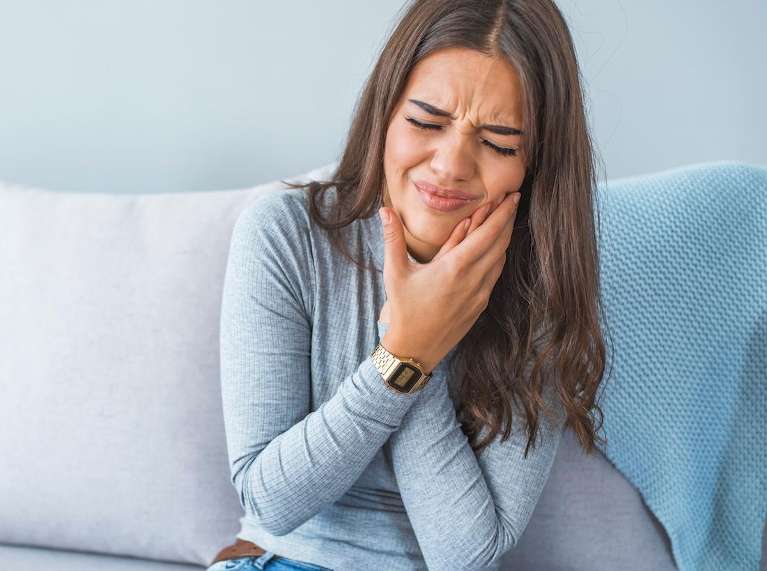
With allergy season in full swing, our Surf City Dental team often notices an uptick in patient concerns about painful, achy teeth this time of year. It’s common for allergies to lead to sinusitis, swelling or inflammation of the nasal passages. And if you’re particularly sensitive to pollen or grass, North Carolina’s spring and summer seasons can not only wreak havoc on your sinuses but also your mouth!
Differentiating between issues caused by allergies and those caused by dental concerns can be tricky, but Surf City Dental is here to help! Below, we discuss the ways sinus troubles affect your teeth and mouth, how to tell the difference between the two and provide several tips for controlling discomfort. Let’s get started!
Allergy-Related Dental Disorders
Nasal congestion and sinus pressure affect your mouth in two main ways: toothache and dry mouth.
1. Toothache
Your maxillary sinuses are located very close to the roots of your upper teeth and jawbone. Therefore, when you suffer from allergy symptoms – irritated glands, sinus pressure, congestion – you’ll often feel discomfort and an aching sensation in your top molars first.
While soreness due to sinusitis is typically harmless, it can be uncomfortable and may mask other oral issues that need to be addressed.
2. Dry Mouth
Because nasal congestion can make breathing through the nose difficult, many individuals inhale and exhale through their mouths instead, causing dry mouth. A variety of medications used to treat allergy symptoms are known to contribute to the condition as well.
Prolonged dry mouth can lead to several dental concerns. For instance, the enzymes in saliva work to fight bacteria in your mouth and prevent tooth decay. When your mouth is dry, it produces less saliva, leaving your teeth and gums more susceptible to cavities and gingivitis. This buildup of bacteria can also cause bad breath.
Is It Allergies Or A Dental Issue?
Here at Surf City Dental, we have a few tricks and tips we’d love to pass along to help you determine the cause of your discomfort. If you’re unsure what’s to blame, start by answering the following questions:
Where is the irritation?
Are you experiencing aches in just one tooth or multiple teeth? Allergies will cause discomfort in several teeth at once – usually your top molars, though you may also experience a throbbing sensation in your bottom teeth. Pain from a toothache or cavity, on the other hand, will be localized to one particular tooth.
When is tooth pain the worst?
Do you feel a twinge when biting into something? Are your teeth sensitive to hot and cold? If you answered “Yes” to either of these questions, your distress is likely due to a dental issue, not allergies.
Sinus pressure from congestion typically gets worse when you perform certain movements – bending over or jumping up and down, for example. It’s also less intense than what you’ll feel with a cavity, resulting in more of a dull ache than a sharp pain.
Are you experiencing other sinusitis symptoms?
Do you have a fever, chills, low energy, watery eyes, or body aches? These non-tooth-related conditions often accompany a cold, allergies, or a sinus infection. If your dental discomfort is happening at the same time as these indicators, there’s a good chance that allergies are to blame.
What Can You Do?
The only real way to prevent oral pain from allergies is to lessen the symptoms you experience. Here are a few ways to keep symptoms at bay:
- Limit the time you spend outdoors when allergens are most prevalent
- Use over-the-counter decongestants and antihistamines to minimize symptoms like sinus pressure and congestion
- Fight dry mouth by drinking plenty of water to stay hydrated
If you’re unsure what’s causing your teeth to hurt, give your Surf City dentist a call. Our team will perform a check-up to uncover the source of your discomfort and suggest solutions for relief. Don’t let allergies become a pain in your mouth! Now, you’re equipped with the knowledge to identify sinus-related oral issues and take the steps needed to get back to enjoying the season!